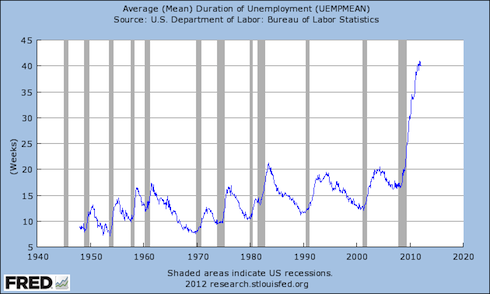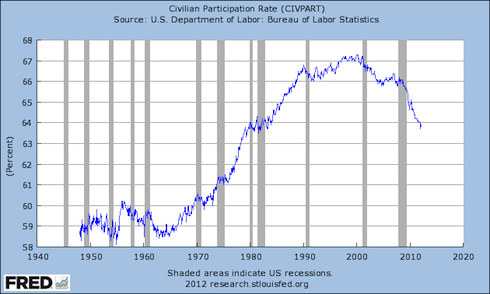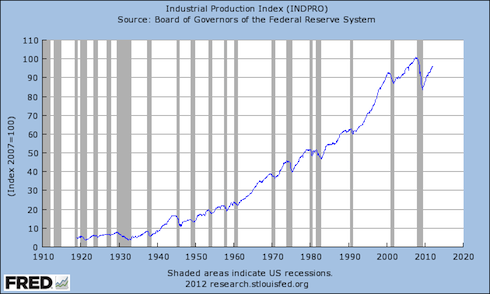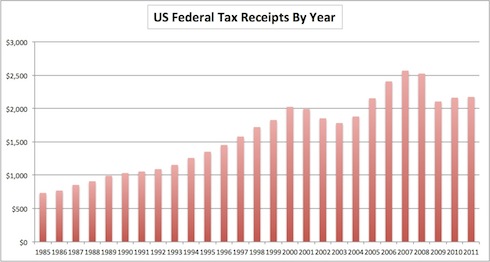While the mainstream financial media and 99% of investors continue to believe that Germany will align itself with the EU, we’ve been pounding the table Germany will in fact look after its own interests rather than the EU’s and that it might in fact leave the Euro temporarily.
We’ll start with German Finance Minister Wolfgang Schauble, who was hinting that the EU was off-track in its policies and that Germany was focusing on a “political union” NOT a “monetary union” as far back as November 2011.
Wolfgang Schauble admits euro bail-out fund won’t halt crisis
Europe’s “big bazooka” bail-out fund is not ready and won’t stem the debt crisis that on Tuesday pounded Italy and the European Central Bank (ECB), admitted Wolfgang Schauble, Germany’s finance minister.
This is a pretty strong admission from the finance minister of the country that Europe looks to as a financial backstop. And the following is even more disconcerting for the future of the Euro:
Seeing in Crisis the Last Best Chance to Unite Europe
MR. SCHÄUBLE said the German government would propose treaty changes at the summit of European leaders in Brussels on Dec. 9 that would move Europe closer to the centralized fiscal government that the currency zone has lacked. The ultimate goal, Mr. Schäuble says, is a political union with a European president directly elected by the people.
“What we’re now doing with the fiscal union, what I’m describing here, is a short-term step for the currency,” Mr. Schäuble said. “In a larger context, naturally we need a political union.”
Critics say the spending cuts German leaders have demanded from other countries are hurting growth across the Continent, in the process making debts only harder to repay. And his proposals to give the European Commission far-reaching powers to enforce budgetary discipline have been likened by skeptics in Britain to an invasive new “super state.” Even some euro supporters fear that Mrs. Merkel and Mr. Schäuble are talking about long-term changes while panicked investors and practiced speculators are tearing the euro to pieces right now.
“There is a limited transition period where we have to manage the nervousness on the markets,” Mr. Schäuble said. “If it is clear that by the end of 2012 or the middle of 2013 that we have all the ingredients for new, strengthened and deepened political structures together, I think that will work.”
He sees the turmoil as not an obstacle but a necessity. “We can only achieve a political union if we have a crisis,” Mr. Schäuble said.
Note that Schauble repeatedly emphasizes the goal of a “political union,” NOT a “fiscal union” or “monetary union.” Indeed, his one reference to a “fiscal union” is in the “short-term,” while stressing that in a “larger context” the EU needs a “political union.”
Since Schauble’s statements, Germany has also reactivated its Sonderfonds Finanzmarktstabilisierung – Special Financial Market Stabilization Funds, or SoFFin for short.
The SoFFin is essentially Germany’s emergency bailout fund for times of Crisis. It was created in October 2008 to help the German financial system get through the 2008 Collapse by allowing German banks to dump toxic mortgage assets and other items into the fund so they could clear their balance sheets.
Once things improved, SoFFin was essentially put on hold in December 2010. But in the last three months, Germany has brought it back. And it’s brought it back with one very crucial difference:
Germany Approves Bank Bailout Bill
The SoFFin will give up to €400 billion ($524.24 billion) in guarantees for banks and provide up to €80 billion for recapitalization. The fund, which for the first time will accept euro-zone government bonds, will be operational until Dec. 31 2012.
http://online.wsj.com/article/SB10001424052970204573704577184362262410868.html?mod=googlenews_wsj
This is the mother of all bombshells in Europe and no one is talking about it. Germany basically just announced that it will allow German banks to DUMP euro-zone government bonds off their balance sheets. It also announced it will provide up to 400 billion euros in backstops and 80 billion euros for bank recapitalization.
So Germany will put up 480 billion to backstop its own financial system. Just like that. This is the same country that has to be dragged kicking and screaming into raising any additional funds to defend the EU.
By the way, Germany has also passed legislation that would permit it to leave the Euro but remain in the EU if it chose to. And now, after months of butting heads with ECB officials regarding monetary policy, Germany is taking monetary matters into its own hands to counteract the ECB’s moves.
Germany launches strategy to counter ECB largesse
The plans have major implications for monetary union, dashing hopes in Southern Europe that Germany might accept a few years of mini-boom at home to help lift the whole system off the reefs.
Andreas Dombret, a key board member of the Bundesbank, said the body would be given powers to check “excessive credit growth” and impose “maximum leverage ratios” to nip economic overheating in the bud.
The Bundesbank will be able to impose “counter-cyclical capital buffers” on lenders, and use “macro-prudential haircuts” in the securities markets. It is understood that the menu of new tools will include limits on the loan-to-value on mortgages along the lines of those used in Hong Kong and other Asian states.
The new framework – introduced by German government in a draft law this week – is partly inspired by the Bank of England’s new system but it also has a German twist…
German house prices rose 5.6pc last year after a decade of stagnation. Officials in Frankfurt are watching the property data closely, fearing that Germany may succumb to the sort of housing bubble that engulfed the Club Med bloc in the early years of EMU.
“The Bundesbank does not want to be blamed for making the same mistakes as central banks in Ireland and Spain where they did not address asset bubbles early enough,” said Bernhard Speyer from Deutsche Bank.
The German authorities are in effect preparing a form of quasi-monetary tightening to offset ECB largesse…
“If the eurozone is to adjust, southern countries must be able to run trade surpluses, and that means somebody else must run deficits,” said Dr Speyer.
“One way to do that is to allow higher inflation in Germany but I don’t see any willingness in the German government to tolerate that, or to accept a current account deficit.
It’s now clear that Germany has been hoping its austerity measures and new fiscal demands would result in weaker EU members leaving the Euro. However, that plan has not worked out. So Germany has begun enacting a “Plan B” namely, putting up a firewall around its financial system.
It’s too soon for us to know how this game of chess will conclude. But our feeling is that Germany is putting all of these measures in place in case it needs to leave the Euro at some point. The catalyst(s) that might provoke this are the upcoming French, Irish, and Greek elections, which could see a resurgence in leftist, anti-austerity measures in these countries.
Most important here is the French election, due in four weeks. where the current frontrunners are Nicolas Sarkozy (Angela Merkel’s right hand man in trying to take control of the EU) and super-socialist François Hollande.
A few facts about Hollande:
1) He just proposed raising tax rates on high-income earners from 41% to 75%.
2) He wants to lower the retirement age to 60.
3) He completely goes against the recent new EU fiscal requirements Merkel just convinced 17 EU members to agree to and has promised to try and renegotiate them to be looser.
Currently polls have Sarkozy and Hollande securing the top slots in the first round of the election on April 22. This would then lead to a second election in May which current polls show Hollande winning (this has been the case in all polls for over two months).
However, there’s now another leftist wildcard coming into the mix: communist Jean-Luc Mélenchon who is now taking 11% in the polls (he was at 5% last month). And Mélenchon’s primary campaign message? Rejecting austerity measures completely via “civic uprising.”
Now, Mélenchon could end up taking votes away from Hollande therby allowing Sarkozy to win. It’s difficult to say how this will play out. But if Sarkozy loses to either of these candidates, then the EU in its current form will crumble as Germany loses its principle ally in pushing for fiscal reform and austerity measures
Thus Germany is facing the following:
1) A potential change in the political climate to one of anti-austerity measures and fiscal prudence in the EU.
2) Tensions with the ECB which continues to flood the markets with liquidity… liquidity that is flowing into Germany and kicking up inflation.
Hence Germany’s ‘Plan B”: firewall its banking system and lay the groundwork for leaving the Euro if it has to.
Those investors looking for actionable investment ideas could also consider our Private Wealth Advisory newsletter: a bi-weekly detailed investment advisory service that distills the most important geopolitical, economic, and financial developments in the markets into concise investment strategies for individual investors.
In 2011, Private Wealth Advisory’s model portfolio returned 9% vs. the S&P 500’s return of 0%. As of yesterday, we’ve now locked in 40 straight winning trades and haven’t closed single losing trade since July 2011.
As a result our research has been quoted in Crain’s New York Business, CNN Money, RollingStone magazine, Fox Business News, The Glenn Beck Show, the NY Post and elsewhere.
To learn more about Private Wealth Advisory…
Best Regards
Phoenix Capital Research









